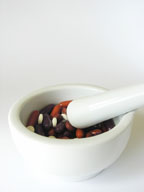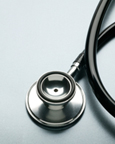HOME
PAST DIGITAL ISSUES
HIV/AIDS HOTLINES
HIV BASICS
POSITIVE PROFILES
ASO SPOTLIGHT
RECENT ARTICLES
HOW TO PAY FOR HIV TREATMENT AND MEDICATIONS
ADAP CRITERIA AND FORMULARIES
ASO LISTINGS
REVIEW OF HIV MEDICATIONS
2018 HIV/AIDS FUNDRAISING ACTIVITIES & EVENTS
ABOUT HIV POSITIVE! MAGAZINE
LINKS
SUBSCRIBE
CONTACT US
ADVERTISER INFORMATION

Editor’s note: I wrote the first version of this article ten years ago, when we first started publishing HIV Positive! magazine. It was a big hit, so we posted it on our website (hivpositivemagazine.com). Once a year we dust it off, check to make sure everything is current, and reprint it in the magazine. You’d think everyone would know the basic facts about HIV by now—what it is, where it came from, and how it is spread. But they don’t—not even close! Every year when we publish this article, we get requests from AIDS Service Organizations for additional copies to use with their clients and in their outreach efforts. So here it is, once again.
There’s a BIG difference! The general public thinks that anyone who is infected with HIV “has AIDS.” But that is not correct. You can be infected with HIV and not have AIDS.
HIV is a virus. The letters stand for Human Immunodeficiency Virus. HIV attacks and kills important immune cells—cells that help you fight off diseases and infections. The cells HIV attacks are called “CD4+T cells,” or “T-cells” for short. By attacking and killing T-cells, HIV causes AIDS.
But it takes a long time for that to happen. HIV works very slowly. On average, it takes ten years for HIV to cause AIDS—even without treatment.
So what is AIDS? AIDS is Acquired Immune Deficiency Syndrome. You don’t have AIDS until your T-cell count drops below 200/mm3 (two hundred cells per cubic millimeter of blood) or you begin to suffer from opportunistic infections.
So the fact that you are HIV-positive does NOT mean you have AIDS. The whole purpose of HIV treatment is to keep your HIV infection from turning into AIDS.
No, it is not.

IIt used to be. But everything changed in 1995, when doctors found that taking three HIV drugs in combination could keep HIV from duplicating itself, and keep your HIV infection from turning into AIDS. Since then, the medicines available to treat HIV have gotten better, more effective, and easier to take. The medicines available today are excellent. Even though you still have to take three different medications to control your HIV, many people can take a single pill, just once a day, that combines three medicines into one. Today, no one should die of AIDS if they take their medicines faithfully. Unfortunately, there is no true cure for HIV infection. There is no treatment available today that can eliminate the virus from your body,—and no such cure is in sight. The currently available treatments can reduce the amount of HIV to the point that it is “undetectable.” But it is not completely gone. If you quit taking the medications, it comes roaring back. So when you start taking HIV medications, you’re on them for life.
It’s not that easy to transmit HIV! If you are HIV-positive, you don’t have to worry about giving the disease to your family or friends by sneezing or coughing on them, or by swimming in the same pool. It is not spread by a handshake, or a hug, or even a kiss. People talk about HIV being transmitted by “shared bodily fluids,” but there are no known cases of HIV being caused by sweat, saliva or tears. The bodily fluids that CAN spread HIV are: blood, vaginal fluid, semen and breast milk.
- Through sex. One of the primary ways HIV is transmitted is through anal and vaginal sex. You can also give someone HIV through oral sex, although it is not as common.
- Through drug use. If someone else uses your equipment to inject drugs, they can get infected by tiny amounts of your blood in your needle, syringe, cooker, cotton or rinse water. Of course, the best way to prevent that is not to inject drugs—but if you do, don’t share equipment with anyone else. If you must share, meticulously clean your equipment with bleach and water before every use!
- From mother to baby. Without treatment, about one in four babies (25.5%) born to women with HIV have HIV themselves. Fortunately, the use of AZT before, during and after delivery (by the baby) can cut the risk to just one in twelve (8.3%). The risk may be reduced even further if you have your baby by Cesarean section. Even better news: a new study shows that the transmission rate is only one percent (one out of a hundred) when the mother has a viral load of less than 1,000 and is receiving antiretroviral treatment at the time of delivery!
After birth, an HIV-positive woman must NOT breast-feed her baby. Breast milk carries HIV, and it can cause HIV in a baby who was born healthy.
 Absolutely not—although it seemed that way at first. The very first mention of AIDS in America came on June 5, 1981, in a report from the Centers for Disease Control, which said that a rare parasitic lung disease had been reported in Los Angeles among “5 young men, all active homosexuals.” So many of the first victims were gay men that one of the first names given to this new disease was GRID—Gay Related Immune Disorder. It was also called “Gay Cancer.”
Absolutely not—although it seemed that way at first. The very first mention of AIDS in America came on June 5, 1981, in a report from the Centers for Disease Control, which said that a rare parasitic lung disease had been reported in Los Angeles among “5 young men, all active homosexuals.” So many of the first victims were gay men that one of the first names given to this new disease was GRID—Gay Related Immune Disorder. It was also called “Gay Cancer.”
Now, however, it’s clear now that HIV is NOT a “gay disease.” It doesn’t care about your sexual preference. It is spread just as readily by straight sex as it is by gay sex. In Africa, where the rates of HIV infection are far higher than in the United States, the vast majority of infections have resulted from straight sex.
Today, in America, HIV is spreading fastest not in the white gay community, but in the African-American and Latino communities. Last year, women made up more than 30% of new infections.
Whenever a new disease comes along, there is always wild speculation about what started it. HIV has been blamed on everything from “The White Man” to polio vaccine to the CIA.
The truth is that HIV appears to have spread to humans from monkeys. The same virus in monkeys is called SIV, for Simian Immunodeficiency Virus. HIV-1—the strain most common in Central and Southern Africa, the United States and the rest of the world—seems to have come from chimpanzees. HIV-2—the strain found in West Africa—seems to have come from the sooty mangabey monkey.
How could a disease found in monkeys infect humans? Very easily. Monkeys in Africa are commonly hunted for meat. If a hunter just nicked his hand with his knife as he was cleaning or butchering an infected monkey, transmission would be almost certain.
1. Take a deep breath.
Learning that you’re HIV-positive is a shock. But it’s not as bad as you may think. With the medicines we have today to suppress the virus, there’s a very good chance you’ll live a normal life span.
So don’t panic. Don’t go crazy. You’re going to be around for a long, long time. Give yourself a little time to get used to the idea that you have HIV. And then…
2. Find a doctor who is
experienced in dealing
with HIV and AIDS.
This is no time to rely on your family doctor. HIV treatment is very complex and it changes all the time. Make sure your doctor is an HIV specialist.
If you’re newly infected, you may not need to take HIV medicines for years. But you need a doctor right now to monitor your viral load and T-cell count. Even though you may be feeling fine, you should have your viral load tested every 3-4 months, and your T-cell count measured every 3-6 months.
3. Take your meds!
HIV medications are much easier to take than they used to be. But it is still very important that you take them religiously. If you quit taking your medications for a period of time, your HIV can mutate and develop resistance to the drugs you were taking. So when you do go on meds, absolutely commit yourself to taking them—on time, every time, for the rest of your life.

4. Practice safer sex.
For anyone with HIV, using condoms are a must. Practice safer sex not only to protect your partners, but also to protect yourself. Yes, you are already HIV-positive. But there are all kinds of strains and mutations of HIV—some of which are resistant to multiple HIV drugs—and you don’t want anything you don’t already have.
5. Adopt a healthy lifestyle.
 When your immune system is challenged, you need to take better care of yourself. If you’re abusing drugs or alcohol, now is the time to stop. If you’re a smoker, it’s essential that you quit—all the bad things that cigarettes do to healthy people they do to people living with HIV faster!
When your immune system is challenged, you need to take better care of yourself. If you’re abusing drugs or alcohol, now is the time to stop. If you’re a smoker, it’s essential that you quit—all the bad things that cigarettes do to healthy people they do to people living with HIV faster!
6. Get in shape.
One of the most positive things you can do for yourself is start a regular program of exercise. Working out with weights helps you build lean muscle mass, which is critically important for people with HIV. Weight training also builds your strength and can help protect you from osteoporosis by increasing your bone mineral density. (Osteoporosis is increasingly becoming a problem for people on long-term anti-HIV treatment.)
Exercise is also one of the best ways to prevent and reverse lipodystrophy, the changes in body fat distribution that affect some people with HIV. And exercise helps lower both your blood pressure and your cholesterol level. (Elevated cholesterol is a problem for many people on HIV medications.)
7. Protect your heart.
 If you’re on HIV meds—especially if you’re on a regimen that includes a Protease Inhibitor—ask your doctor for a complete cholesterol check, which is also called a “lipid panel.” Some HIV medications can raise your LDL (“bad cholesterol”) levels along with your triglycerides—another fatty substance in the blood which can contribute to heart disease. If your cholesterol and triglycerides are high, your doctor may prescribe a class of drug called “statins” to help bring them down. In any case, you can help keep your cholesterol under control by learning about nutrition and eating a diet that is low in saturated fats and high in fiber. Exercise also helps keep your cholesterol levels under control.
If you’re on HIV meds—especially if you’re on a regimen that includes a Protease Inhibitor—ask your doctor for a complete cholesterol check, which is also called a “lipid panel.” Some HIV medications can raise your LDL (“bad cholesterol”) levels along with your triglycerides—another fatty substance in the blood which can contribute to heart disease. If your cholesterol and triglycerides are high, your doctor may prescribe a class of drug called “statins” to help bring them down. In any case, you can help keep your cholesterol under control by learning about nutrition and eating a diet that is low in saturated fats and high in fiber. Exercise also helps keep your cholesterol levels under control.
8. Learn all you can about your virus.
You’re going to be dealing with HIV for the rest of your life—so it only makes sense to learn all you can about it. Read up. Do the research. Become an HIV expert! Find out all you can about what you’re dealing with, so you can deal with if effectively.
9. Contact your local ASO.
An ASO (AIDS Support Organization) can help you in dozens of different ways. Depending on where you live, you may find that they can hook you up with everything from primary health care and medications to housing, drug and alcohol treatment, transportation, psychological counseling and legal representation. They have answers to questions you don’t even know to ask! So don’t try to go it alone. There are people out there who want to help you. There's a good listing of local ASOs at www.hivpositivemagazine.com.
10. Keep your chin up.
One of the greatest risks you face as a person living with HIV is depression. Don’t let it get you!
If you really feel down in the dumps—especially if you have thoughts of suicide—get help from your doctor. Anti-depressant medications can help bring you out of it. So can psychological counseling. Exercise is also a highly effective anti-depressant.
You can live a long, happy, fulfilling, fantastic life with HIV! But not if you let it get you down. Not if you let it make you act like you’re sick.
Yes, you have to control your HIV. But you don’t have to let it control you! Every new day is an awesome gift, yours for the taking. Seize it!
Copyright 2018, Positive Health Publications, Inc.
This magazine is intended to enhance your relationship with your doctor - not replace it! Medical treatments and products should always be discussed with a licensed physician who has experience treating HIV and AIDS!